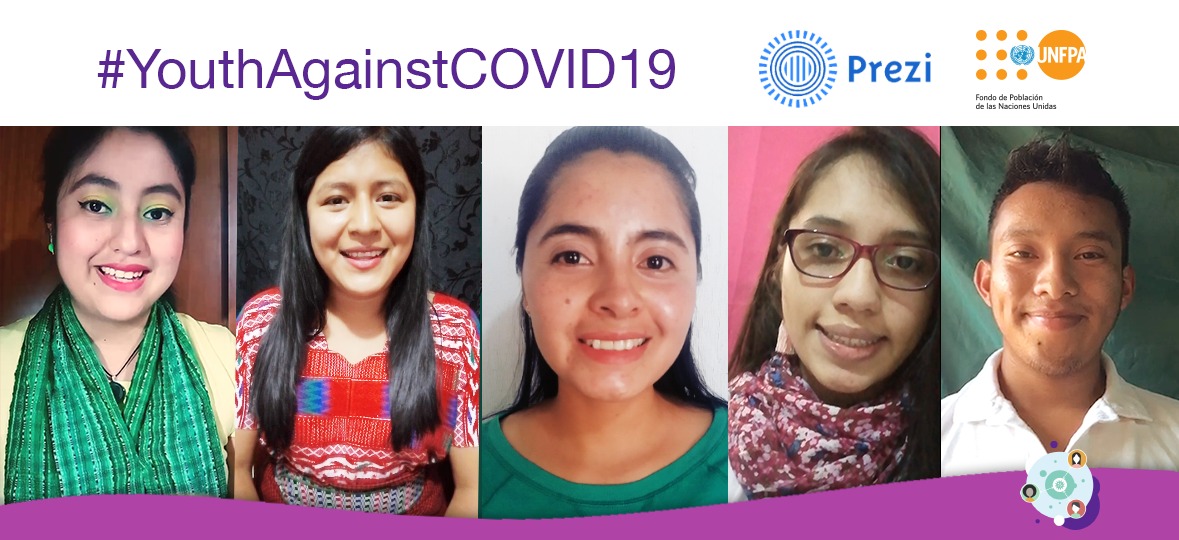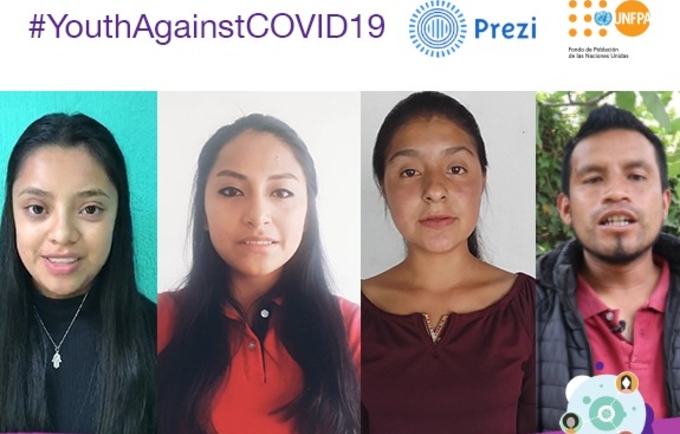In Guatemala according to the 2018 Census, only about 41 per cent of adolescents and youth (aged 14-29) used the internet during the three months prior to this measurement.
UNFPA Guatemala Country Office in partnership with youth leaders from around the country are already engaged in disseminating accurate information about COVID-19 by sharing their personal experiences in their communities. Considering the inequalities in accessing the internet and the challenges that indigenous, poor and rural young people face.
Despite limited access to internet and information technology the members of the UNFPA Youth Accompaniment Group -GAJ-, have not ceased in taking action. They are already recording their videos in the #YouthAgainstCOVID19 adapting the scripts customizing one-minute video capsules by using their own cell phones. Inspired by the contents of the Campaign, they are advising young people throughout their communities. The UNFPA Guatemala Communication team has supported them by providing internet data and editing the videos attached to the global campaign’s visual identity, making use of the colour palette and graphics of the original videos provided globally.
A diversity of young people are promoting the campaign through social media, from youth indigenous organizations working at grassroots levels until youth activists promoting advocacy efforts. Their stories have been featured on Facebook and Instagram stories format promoting youth participation and sending awareness messages about the pandemic.
Elida López, a 24 years old an indigenous young women activist and Secretary of the Community Council in Sololá Department, promotes in her video positive coping strategies for young people appealing to embrace solidarity which is an important value for indigenous people amid these challenging times.
María José Carranza, a 25 years old Paralympic athlete and activist defending the rights of persons with disabilities shares her experience during COVID-19 pandemic:
“Talking about mental health in a pandemic is about considering issues like stress and anxiety produced by social distancing. This is even more difficult under a disability condition since we are more exposed to infection by the virus due to the aids we use to mobilize, such as our wheelchairs, canes, crutches, etc. This produces more anxiety among us because it is not as easy to go out looking for a job, or food, as other people do”.
Similarly, in the Eastern region of the country Patricia Cortés, a young women activist from the Colectivo Joven (Youth Collective) has expressed the challenges young people are facing through her video:
"Today, I want to share with you how the COVID-19 crisis has affected us, young people, in different ways: our mental health care, access to sexual and reproductive health services, an increase in violence, limiting access to economic activities, access to food, basic services, etcétera."

Join young people who are making the difference during COVID-19 and take action to transform your reality and support those around you. Click here for more information.
The #YouthAgainstCOVID19 Campaign is an initiative of UNFPA and the Prezi digital platform, which recognizes the contribution of young people in responding to the emergency. In Guatemala, the challenges of young people to access technology made it necessary to adapt the initiative and produce shorter and more agile videos, but with great relevance for the population in the country. The contents of the campaign are based on the recommendations of the World Health Organization and the scientific evidence available so far.

